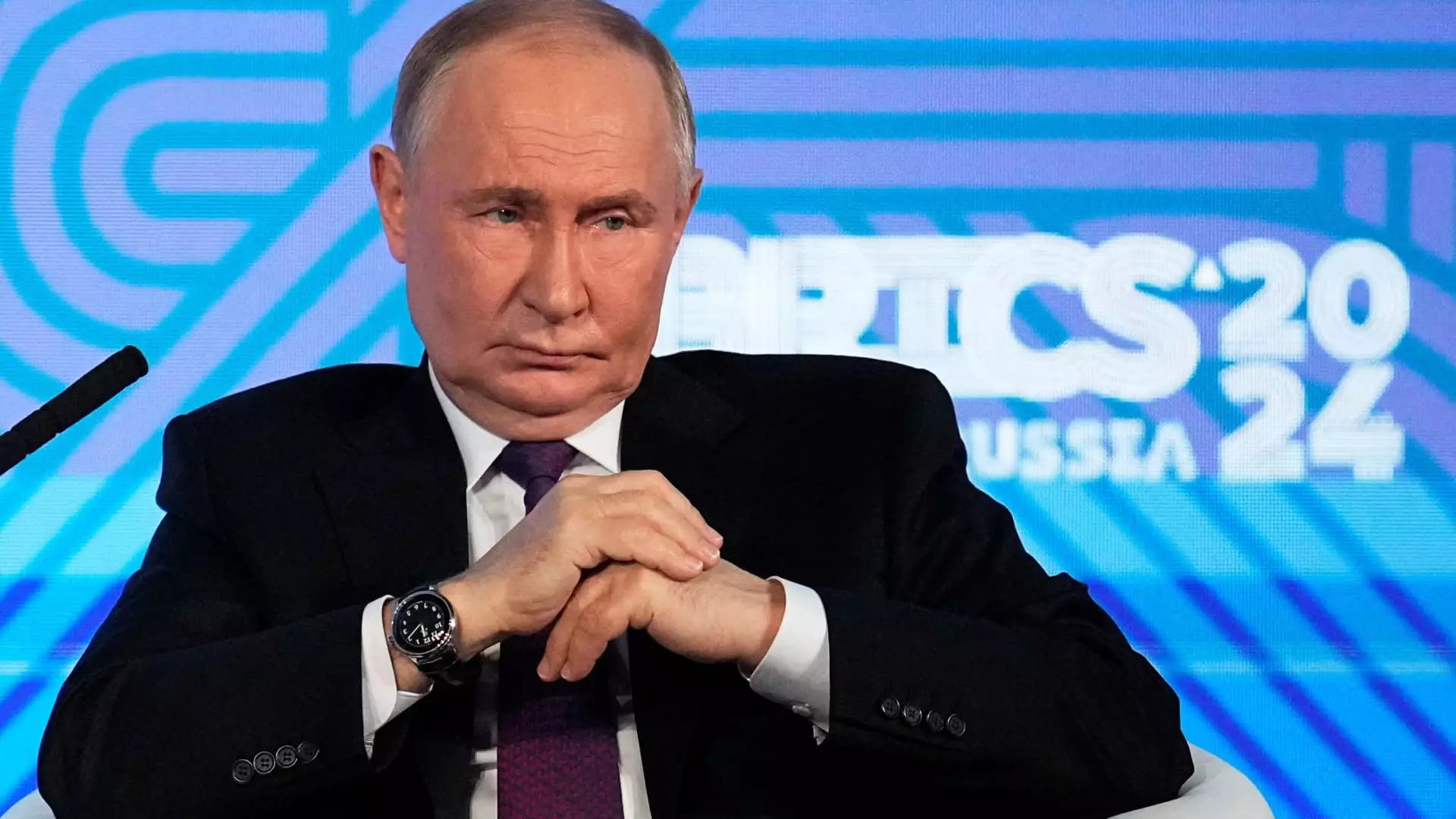Recently, the BRICS group has garnered significant attention as an economic powerhouse, poised to shape the future of global GDP and international trade dynamics. Initially comprised of Brazil, Russia, India, China, and South Africa, the group has expanded to incorporate Egypt, Ethiopia, Iran, and the United Arab Emirates. This expansion reflects not only the growing influence of these nations in the world economy but also a concerted effort to establish a counterbalance to Western economic hegemony, particularly the dominance of the United States dollar.
Russian President Vladimir Putin has been vocal about the shift in economic paradigms, emphasizing that the upcoming years will witness a significant increase in global economic growth being driven by BRICS nations. He articulated that the economic trajectories of BRICS countries are becoming increasingly insulated from external pressures and foreign interventions, highlighting a desire for economic sovereignty. By fostering a climate of independence, BRICS aims to solidify the groundwork for self-sustaining economic development which contrasts with the dependency historically associated with Western financial systems.
Set against the backdrop of these ambitious developments is the BRICS summit scheduled for October 22-24, 2023, in Kazan, Russia. This summit is projected to serve as a platform for the member nations to strategize and address key economic and geopolitical challenges. Moscow is positioning this event not only as a response to Western sanctions but also as an affirmation of BRICS’ unity and resilience. As nations like China, India, and the UAE confirm their participation, it signals a collective commitment to redefining global economic relations.
Engaging New Partners and Exploring Expansion
Putin revealed that interest from over 30 countries to join the BRICS framework showcases the group’s growing appeal in a multipolar world. This increasing interest indicates a potential for further globalization through diverse partnerships, further enhancing BRICS’ influence. The dialogue surrounding expansion will likely dominate the summit’s discussions, signaling an era where collaboration transcends traditional geopolitical boundaries, as countries seek alternate economic alliances.
In conjunction with advancing partnerships, BRICS leadership is taking bold steps towards financial innovation. Putin mentioned initiatives aimed at developing a cross-border payments system and a financial messaging network akin to SWIFT, expressly designed to operate independently from Western sanctions. The emphasis on utilizing national currencies for trade within BRICS indicates a shift away from dollar-dependency, promoting a more diversified and resilient economic framework. The activation of the New Development Bank stands as a crucial effort to stimulate economic activities across the Global South, presenting an alternative pathway for investment and growth.
As part of its developmental strategy, BRICS is focusing on sectors poised for growth, such as e-commerce and artificial intelligence. Encouraging investment in these areas could position member states at the forefront of technological advancement while enabling them to compete more effectively on the global stage. Putin’s push for incorporating national digital currencies also indicates an innovative approach to financing investment projects, particularly in nations often sidelined by larger financial institutions.
Strategic Infrastructure Projects
Underlining the vision of enhanced connectivity and transportation, Russia is promoting significant infrastructure projects, like the Arctic Sea Route and the North-to-South corridor, which would facilitate trade between Eurasia and Africa. These projects aim to bolster logistical capabilities, ensuring that BRICS nations are not only economically intertwined but also geographically advantageous for global trade flows.
As BRICS advances into a new chapter marked by economic collaboration, financial independence, and infrastructural investments, it stands poised to challenge the prevailing global economic order. The upcoming summit in Kazan symbolizes a critical juncture for these nations to fortify their alliances and project a more balanced geopolitical narrative. The focus on collective growth and self-reliance could very well redefine international relations in the years to come, positioning BRICS as a formidable player in the global arena.


Leave a Reply